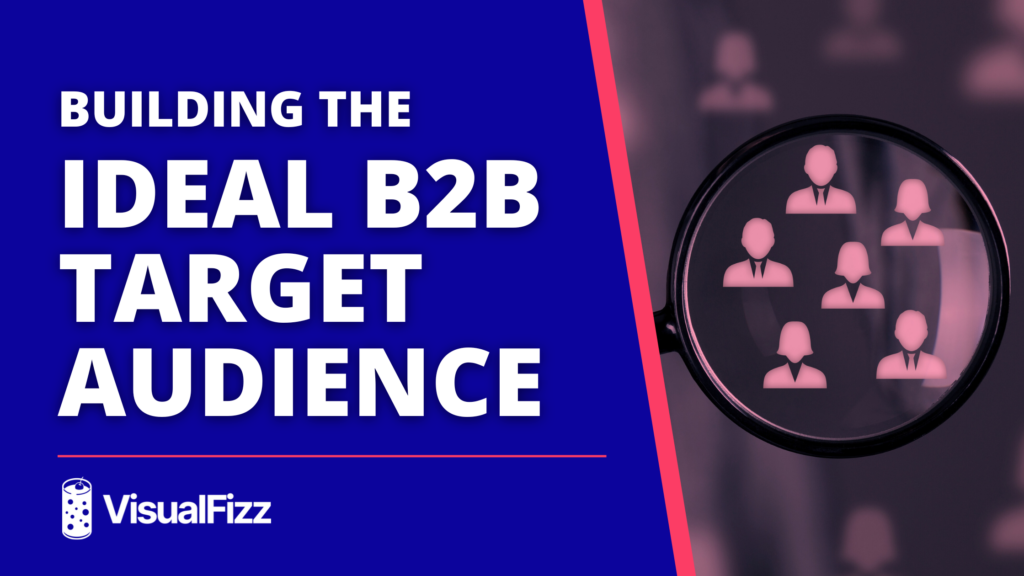
B2B markets, essential to the economy, involve businesses selling to other businesses. Success relies on understanding each market:
- Producers focus on efficiency and long-term value.
- Resellers prioritize high-demand items for quick sales.
- Government Agencies require compliance and complex procurement.
- Institutions (non-profits, schools) balance mission goals with budgets.
Whether you’re just starting out or aiming to refine your B2B marketing strategy, this will give you a clearer picture of how to navigate these diverse sectors.
The Core of B2B Markets
B2B markets are complex ecosystems where businesses work together to create value. You’ll succeed by prioritizing long-term relationships, tailored solutions, and a deep understanding of your customer’s needs. The focus is on selling products or services to other businesses—not consumers.
Your audience isn’t the end-user—instead, it’s decision-makers within companies who rely on your offerings to run their own businesses smoothly.
The Top 4 B2B Markets You Should Know
Understanding who you’re selling to is crucial. B2B markets are made up of four main groups:
- Producers: These are the companies that manufacture goods or offer services that other businesses need.
- Resellers: These businesses buy products to sell to other companies, often adding value through repackaging or additional services.
- Government Agencies: The public sector is a major buyer of goods and services, from infrastructure to military equipment.
- Institutions: Non-profits, schools, and hospitals are all part of the institutional B2B market.
Each of these groups has unique needs, decision-making processes, and buying behaviors that you’ll need to understand.
Producer Markets
The Manufacturing Powerhouses
Producer markets consist of companies that create goods or services for other businesses to use in their operations. These markets are characterized by large, high-value transactions, often with technical specifications or customization requirements.
Why It’s Important to Understand Producer Markets:
Producer markets are all about rational decision-making, efficiency, and long-term value. The stakes are high because purchases in these markets often involve significant investment and affect a company’s overall operations.
Buyers are focused on the practical benefits, cost savings, and long-term reliability of the products or services they are acquiring.
Key Characteristics:
- Rational, Needs-Based Decisions: Buyers prioritize functionality and technical quality. Decisions are based on how a product or service can improve their operations, not on emotional factors.
- Complex, Long-Term Purchases: Deals in producer markets often have long-term implications for the buyer’s business. These purchases require extensive research, customization, and a focus on efficiency and ROI.
Example:
In the aerospace industry, a manufacturer might invest millions in machinery to produce aircraft parts. This decision involves multiple stakeholders and requires precise technical specifications to ensure quality and compliance with safety standards.
Tips to Succeed:
- Highlight the practical benefits and operational improvements your product can deliver.
- Emphasize technical quality, reliability, and long-term value.
- Be prepared to offer detailed product specifications and data to support decision-making.
Reseller Markets
The Distribution Experts
Resellers serve as intermediaries between manufacturers and the end customers. They buy products from producers and sell them to other businesses, often adding value through packaging, bundling, or additional services. Understanding how resellers operate can help you expand your market reach without the need for direct sales.
Why It’s Important to Understand Reseller Markets:
Resellers play a critical role in distribution, and their buying decisions are often influenced by the demand trends in their markets. They need to stock products that sell quickly and profitably, so understanding the reseller market means knowing what’s driving demand, how they make purchasing decisions, and what value you can add.
Key Characteristics:
- Expanding Market Reach: Resellers help producers extend their reach by leveraging their own customer relationships and distribution networks.
- Streamlined Purchasing: Resellers focus on quick, profitable transactions. They evaluate products based on price, availability, and demand in their market, aiming to stock items that will sell quickly.
Example:
Amazon Business, one of the largest B2B platforms, allows businesses to easily purchase products in bulk from resellers. These transactions are typically fast and influenced by demand trends, availability, and pricing.
Tips to Succeed:
- Show how your product meets demand in their market and why it will sell quickly.
- Be competitive on price and ensure consistent availability.
- Highlight how partnering with you can increase their profitability and expand their offerings.
Government Markets
Complex and High-Stakes
Government markets consist of public sector organizations that procure goods and services to fulfill their public responsibilities. Navigating government procurement can be challenging, but the rewards are significant, with contracts often involving large, long-term projects.
Why It’s Important to Understand Government Markets:
Government procurement is heavily regulated, and the purchasing process is often lengthy and complex. Understanding how governments buy is essential if you want to win contracts in this space. Government buyers focus on compliance, reliability, and long-term results, so you need to be prepared to meet strict criteria.
Key Characteristics:
- Lengthy Procurement Cycles: Government purchases can take months or years to finalize. The procurement process involves multiple stages, including planning, market research, solicitation, and contracting.
- Strict Regulatory Requirements: Government agencies must comply with strict rules and regulations, including supplier eligibility, staffing, and production capabilities.
Example:
The U.S. Department of Defense (DOD) frequently awards multi-billion-dollar contracts for military equipment, such as fighter jets or submarines. These contracts require suppliers to meet rigorous technical specifications and adhere to strict timelines.
Tips to Succeed:
- Understand the complex government procurement process and be patient with the timeline.
- Highlight your compliance with regulatory requirements and ability to meet large-scale demands.
- Demonstrate your past success with government contracts and your ability to deliver long-term results.
Institutional Markets
Non-Profit and Public Sector Dynamics
Institutional markets include non-profit organizations, educational institutions, and healthcare providers. These markets often have unique challenges and decision-making processes, requiring a different approach compared to traditional B2B markets.
Why It’s Important to Understand Institutional Markets:
Institutional buyers have to balance budget constraints with their mission-driven goals. Whether it’s a non-profit trying to stretch its funding or a university managing a tight budget, institutional buyers are often focused on long-term value and impact. Understanding these dynamics can help you craft a compelling offer that aligns with their objectives.
Key Characteristics:
- Multiple Stakeholders: Institutions often have to consider the needs of various groups, including donors, volunteers, and beneficiaries.
- Mission-Driven Decisions: Non-profits, for example, make purchasing decisions based on how products or services will help them achieve their mission and improve operations.
Example:
A non-profit hospital might purchase medical equipment using a combination of donor funding and internal budgeting. Decisions are driven by the need to provide better care while staying within financial constraints.
Tips to Succeed:
- Tailor your messaging to align with their mission and demonstrate how your product can make an impact.
- Emphasize the long-term value and cost-effectiveness of your offering.
- Understand the budgetary constraints and decision-making processes unique to non-profits and institutions.
Mastering B2B Market Diversity = Sustainable, Long-Term Success
By understanding the distinct buying behaviors of each market, you can tailor your approach, build stronger relationships, and ultimately, drive success.
As digital transformation continues to evolve, you must stay agile, leveraging the right channels and strategies to reach your audience.
Whether you need to refine your approach or develop a comprehensive content marketing plan, VisualFizz can help. Our team specializes in crafting tailored B2B strategies that align with your market’s unique needs, driving engagement, and long-term growth.
Contact us for a conversation on how we can work together.
Publishing Date:






